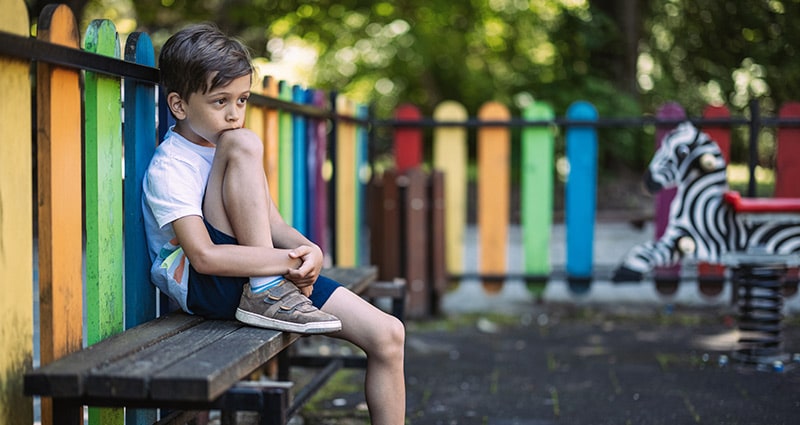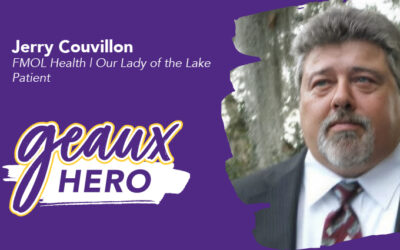Brain development begins during gestation and continues throughout childhood and beyond. For children with autism, something happens with brain development between conception and about six years old.
Autism involves impairments in social interaction, language use and other stereotypical behaviors, but the abilities of those with autism can vary significantly and symptoms can improve with time and intervention.
Explore the the basics of understanding autism and how early diagnosis and intervention can make a difference in the lives of those living with the condition.
Prevalence of Autism
Boys are three to four times more likely to be diagnosed with autism than girls. About one out of every 53 individuals have autism, roughly 2% of the population.
To put that in perspective, if you take all forms of childhood cancers, juvenile diabetes and juvenile rheumatoid arthritis, autism occurs more often than all of those combined.
Range of Abilities
Autism is a spectrum, and children living with the condition experience different levels of difficulties. Some are nonverbal, others can communicate but only talk about topics that are of intense interest to them.
Early signs of autism include no smiles by six months, lack of eye contact, not showing interest and severe, intense interest in a particular subject. Other signs to look for include social difficulties, language impairment, sensory issues such as sensitivity to sounds or textures, and repetitive behaviors.
Sleep issues are very common with autism; about 80% of kids with autism also have sleep disorders. They also experience higher rates of ADHD, anxiety and obsessive behaviors.
Often kids with autism are very picky eaters, only eating two to four foods. Such a limited diet often leads to gastrointestinal problems, such as reflux and constipation.
There’s no medication for autism, but because of the associated stomach, sleep, behavioral or other problems, many children who live with autism take medicine to treat and manage those associated conditions.
Keys to Reducing Symptoms
Early diagnosis and intervention are keys to better outcomes for children with autism. Connecting with resources can allow individuals with autism to improve their skills. Intervening early with more intense therapies, including speech, occupational and physical therapies, allow children to thrive.
Early interventions that can improve life of children with autism include:
- speech and occupational therapy,
- behavioral therapy that includes learning skills on how to interact, working to reduce rigidities and improve transitions and social skills, and
- developing educational strengths to enter the school system and acquire skills through education.
A particular behavioral intervention that is used very commonly and benefits some kids with autism is Applied Behavior Analysis.
Children can be made better by the different interventions, and clearly a number of children can make significant improvements.
Misconceptions About Autism
A common misconception may be that autistic kids are just moody or irritable.
While some kids with autism are very irritable, moody and aggressive, that’s not a diagnostic feature.
Another misconception is that individuals with autism make no progress or will never progress with therapies. Most kids who receive intervention will make progress. The amount varies by individual, but some make tremendous progress.
Every person with autism is unique. There’s no one single autism experience.
Connecting with Exceptional Care
Pediatricians are the best way to start any conversation about developmental delays or disabilities. Screening for autism would typically happen at an 18-20 month well check. If a pediatrician or parent has a concern at any time, they should seek further evaluation. Similarly, a family history of autism would indicate a child needs assessment sooner rather than later.
The developmental medicine professionals at Our Lady of the Lake Children’s Health work together to provide multidisciplinary assessments for kids with autism. And because Our Lady of the Lake Children’s Health Developmental Medicine centers are part of Louisiana’s largest healthcare network for kids, access to other medical subspecialists is seamless.
In February 2022, McMains Children’s Developmental Center joined Our Lady of the Lake Children’s Health network, increasing our bandwidth for therapies for kids who have complicated illnesses and disabilities, including autism. Our Lady of the Lake Children’s Health Development & Therapy Center at Goodwood continues to offer exceptional care in addition to those unique education and adaptive therapies only offered at Our Lady of the Lake Children’s Health Children’s Developmental Center at McMains.
Although 2% of children have autism, 15% have developmental disabilities of one sort or another—a significant portion of kids. Our Lady of the Lake Children’s Health provides care for children from 54 of the 60 parishes in Louisiana and children from Mississippi, Alabama, Arkansas and Texas.”




